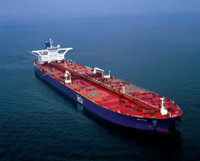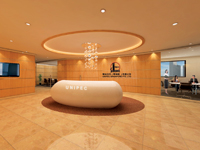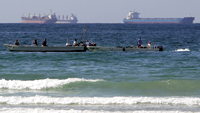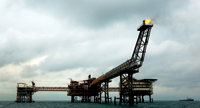
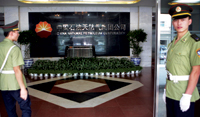 CNPC ... caught in a quandary
CNPC ... caught in a quandary
CHINA National Petroleum Corporation (CNPC) is continuing to work on the $4.7 billion South Pars Phase 11 gas project in Iran, but may drop out if political uncertainty persists and Iran insists on a liquefied natural gas link, according to Chinese sources.
CNPC’s controversial role in sanctions-hit Iran was back in the spotlight following a media report from Tehran quoting Oil Ministry sources as saying that the company had pulled out of the development, which it took over from France’s Total in 2009.
The Mehr news agency, citing information from the Oil Ministry, says CNPC had withdrawn its workers from coastal facilities near Bandar Assaluyeh after “unprecedented” delays in starting work.
The company had not even started preliminary work such as levelling land and putting up fences, Mehr says.
However, a CNPC source says that staff in Iran had taken summer leave at the same time, perhaps giving the impression of a mass departure. He says this was not the case and CNPC’s Iran country manager will in fact be back in his office soon.
CNPC is not pulling out, at least for now, the source says. “We’re still negotiating with them,” he says, although if the delays in starting work continue, the company could not be sure how much longer it can keep its contract. The Chinese source cites political and security issues, in particular the possibility of armed conflict in the region. However, he says the company was most concerned about Iran’s insistence on gas from Phase 11 being liquefied for export.
The international LNG market does not justify construction of a new LNG facility, he says, claiming that Total’s departure in 2009 from what was then the integrated Phase 11-Pars LNG project was because of the French major’s conclusion that the LNG could not be marketed at the high prices projected by Iran.
At the time of its departure Total was seen as unwilling to buck US and European Union pressure to stay away from Iran – as was the Shell-Repsol partnership that dropped out of the parallel Phase 13 and 14 Persian LNG project at about the same time.
CNPC was at the time willing to step into Total’s shoes in Iran, but the US-led sanctions against Iran have since escalated to a point where almost no global player is willing to work in the country.
Iran has insisted it will carry out the projects on its own and that it is no longer interested in an LNG element. Experts said only the planned Iran LNG scheme, once associated with the local development of Phase 12 but more recently linked to Phase 11, will be carried out as a symbolic gesture, although it is unclear how and to where the LNG would be exported – unless CNPC were to make a commitment on export facilities and markets.
Such a commitment by the Chinese seems very unlikely, although Chinese industry sources say that CNPC had finalised the offshore front-end engineering and design for the Phase 11 gas project and was now considering whether to launch an engineering, procurement and construction tender in order to meet the production timeline.
The company’s engineering outfit China Petroleum Offshore Engineering and its partner, Malaysia’s Integrated Process Solutions, were said to have submitted the Feed to CNPC’s overseas unit China National Oil & Gas Exploration & Development Corporation for review.
The scheme involves building two platforms, 11A and 11B, to be linked to an onshore gas plant with two separate subsea pipelines with lengths of 130 km and 120 km.



















































































